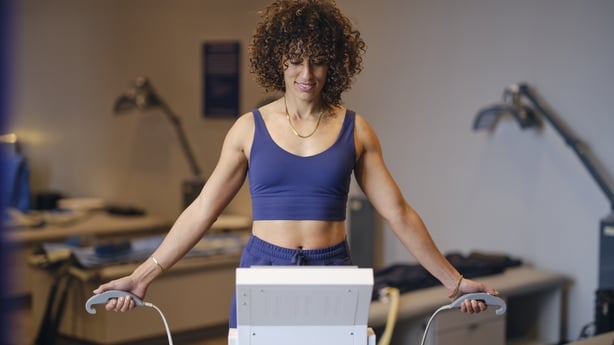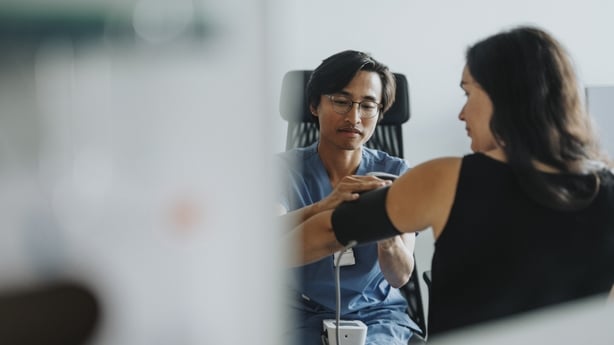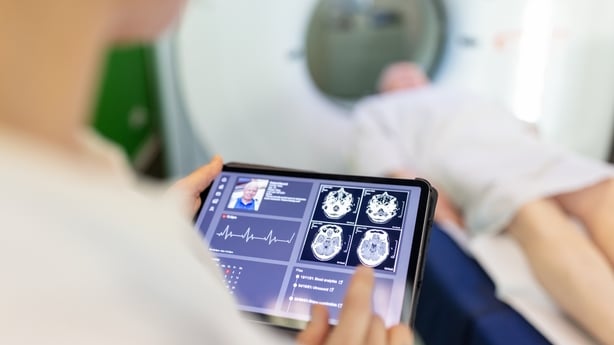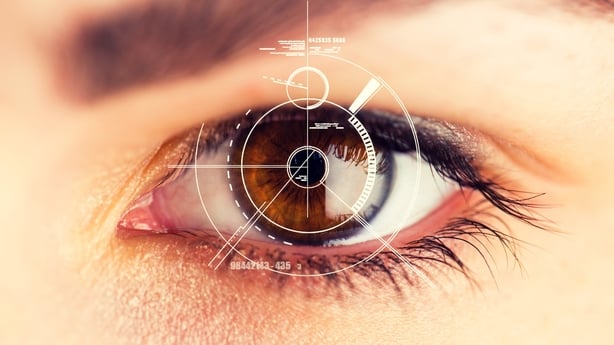Susan Stone is the creator and presenter of It’s a Jungle, exploring the people, science, and ideas shaping our health and wellbeing. Here she explores the emerging world of preventative health scanning.
I’m lying perfectly still in what feels like a sci-fi movie set, watching Emily in Paris through a mirror as a machine worth millions quietly creates 2,000 images of my internal organs.
This isn’t a medical emergency or a routine check-up – this is research, It’s a Jungle style. With so many companies now offering expensive health scans to healthy people, I wanted to understand what we’re actually paying for.
Is this the future of healthcare, or just the latest way to monetise our health anxieties?

Through my work, I investigate health trends to help people navigate an increasingly complex wellness landscape. With preventative scanning companies multiplying rapidly, I wanted to understand: What are we actually getting for our money?
Like most people, I’ve been conditioned to wait until something feels off before seeing a doctor. But as I lay there, it struck me: Maybe that whole approach is backwards.
The Prevention Paradox
We track our steps like our lives depend on it. We monitor our sleep cycles, count our screen time, and know exactly how many glasses of water we should be drinking. We even have apps that remind us to breathe!
But when it comes to what’s happening inside our bodies? We’re functioning on crossed fingers.
That gradual buildup of fatty liver disease from all those lockdown wine nights, the tiny aneurysm that runs in families, the suspicious mass that won’t announce itself for years – we’re essentially flying blind while obsessing over our daily step count.
Dr Dan Durand, Chief Medical Officer at Prenuvo, puts it plainly: “Everybody has someone in their life who died too young of something we might have caught earlier.”
Watch: The story behind Prenuvo and why early detection matters
Two Windows Into the Body
My investigation took me to two companies offering very different approaches to preventative scanning.
Prenuvo in Florida delivered what felt like a full-body Google Earth image: one hour in an MRI scanner, over 2,000 high-resolution internal images, and not a drop of radiation or contrast dye.
Neko Health in London, co-founded by Spotify’s Daniel Ek, offered something completely different. I stepped into a futuristic scanning booth for just 20 seconds. High-resolution cameras and thermal imaging created a “health avatar,” followed by pulse measurements across my body and an immediate result consultation with a doctor.
“We’re breaking with a 200-year-old tradition,” said Neko’s CEO Hjalmar Nilsonne. “The future of healthcare is prevention and data.”
Watch: Hjalmar Nilsonne on real-time data and proactive care
Unlike X-rays or CT scans, MRI technology uses powerful magnets and radio waves rather than radiation. When you lie in the machine, hydrogen atoms in your body temporarily align with the magnetic field. Radio frequency pulses then cause these atoms to produce signals that are used to create detailed cross-sectional images.
Watch: What can these scans actually detect?
But what exactly is Prenuvo looking for? The list is extensive: early-stage cancers, aneurysms, fatty liver disease, heart abnormalities, spine and joint problems, and much more. The level of detail is remarkable, potentially catching issues years before they might become symptomatic.
The Anxiety Equation
Here’s what I learned about the emotional reality of preventative scans: there are medical procedures that have been deliberately disguised as something else entirely. The people getting these scans aren’t here because something hurts or because they found a lump. They’re here because they’ve hit that age
where friends start sentences with ‘Remember Sarah from college?’ and end them with words like ‘aggressive’ and ‘six months.’
What struck me was how both companies understand this psychological challenge intimately. They’ve spent considerable effort making medical procedures feel like wellness experiences. At Prenuvo, you’re not in a hospital corridor – you’re in something that feels more like a high-end spa.
At Neko, you step into what looks like a sleek tech showroom, not a medical facility. But underneath the calming lighting and Netflix options, this is still a medical scan. And the anxiety isn’t just about what they might find – it’s about what they might think they’ve found. False positives are a real thing. So is something called ‘over-diagnosis’ – basically, finding problems that were never going to be problems.

Your scan might flag something that sends you spiralling into a Google rabbit hole at 3am, only for follow-up tests to reveal it’s completely harmless. Are you emotionally prepared for that rollercoaster? Because it’s surprisingly common.
You’re voluntarily opening a door you can never close again. Because once you know what’s inside your body – or think you know – you can’t unknow it. And that’s terrifying for someone who still feels 25 in her head but whose body keeps sending bills for years of treating sleep as optional.
At Prenuvo, the entire experience is designed to reduce anxiety. The setting feels more like a spa than a hospital. You’re offered headphones, Netflix, and calming lighting. And crucially, you don’t just get emailed your results. You speak with a medical professional who walks you through everything in detail.
Watch: Addressing scan anxiety and creating a spa-like experience.
At Neko, the second half of your visit is a dedicated consultation with a doctor who explains your data clearly, using your health avatar as a visual aid. You leave with answers, not questions.
Both companies have thought carefully about how to turn medical scanning into a calm, empowering experience, not an alarming one. But here’s the thing about uncertainty – it cuts both ways.
Yes, there’s a risk of finding something that causes unnecessary worry. But there’s also the risk of not finding something that could be addressed early. The unknowns are exactly what make healthcare decisions so fraught.
What struck me most was how empowering information felt. For the first time, I wasn’t making health decisions based on family history, internet searches, and crossed fingers. I had actual data about my actual body. That’s powerful.
It’s one thing to know you should lose weight for general health reasons, Dr. Durand explains, but quite another to see fatty infiltration in your liver and understand it’s limiting your lifespan. “When you tell them it’s their organs, you get a very, very different level of engagement,” he says.

The Price of Peace of Mind
These scans aren’t cheap. Prenuvo’s full-body MRI costs from around €2,100. Neko’s quicker, external assessment is about €350. Critics argue these services could increase anxiety, lead to over-diagnosis, or reinforce a two-tier healthcare system.
But costs are falling, and AI is improving the accuracy of results. As Wes Streeting, the UK’s Health Secretary, recently said: “Advances in genomics and data mean the healthcare of the future will be more predictive, more preventative, and more personalised than ever before.”
For Irish consumers, these technologies raise important questions about healthcare accessibility and equity. While Prenuvo operates primarily in the US with a European expansion planned, Neko Health’s London location makes it more accessible for those willing to travel.

The reality is stark when many are already struggling with healthcare costs and HSE waiting lists. Both companies predict more accessible pricing as adoption grows, but we’re likely years away from insurance coverage.
Perhaps more significantly, early detection technologies like these could eventually complement our health service rather than compete with it. Catching conditions before they require emergency intervention could reduce pressure on the HSE—but only if these tools become genuinely accessible, not just available to those who can afford to travel and pay privately.
So, Should You Get Scanned?
It depends. If you have a family history of certain conditions, or specific concerns, the answer might be yes. If you want to establish a baseline of what’s happening inside your body, both services offer something valuable.
They’re not magic bullets. A clear scan isn’t a free pass. But for the right person, they could be life-changing.
The question isn’t whether this technology is impressive — it undeniably is. The question is whether we’re ready to use it, or whether we’ll keep waiting until it’s too late.

Towards a Preventative Future
After experiencing both approaches, what struck me most is how this technology forces us to redefine what it means to take care of ourselves. We’ve spent years treating our bodies like unreliable cars – ignoring strange noises and flashing lights until something actually breaks down.
But what if we could shift that narrative? What if being proactive about your health became the new badge of honour, instead of bragging about how little sleep we got or how we ‘powered through’ that chest infection?
This isn’t just about individual peace of mind – it’s about shifting from ‘sick care’ to healthcare. Our current system waits for problems to announce themselves, then scrambles to fix them. These technologies offer a different path.
The data we’re generating now could fundamentally change how future generations approach their health. Better baseline data leads to better preventive strategies. Our children might not have to make healthcare
decisions in the dark.
As I left my final consultation, I thought about Renu – the woman Prenuvo is named after. Would this scan have saved her? We’ll never know. But for the first time in human history, we don’t have to wait for our bodies to cry for help before we listen.

Next Steps
If you’re curious about preventative health scanning but not ready for the full investment, start with what’s already available. Book that overdue GP check-up, get your blood pressure checked, or schedule that smear test.
Sometimes the most revolutionary thing you can do is simply show up for your own health before it demands your attention.
The views expressed here are those of the author and do not represent or reflect the views of RTÉ.
